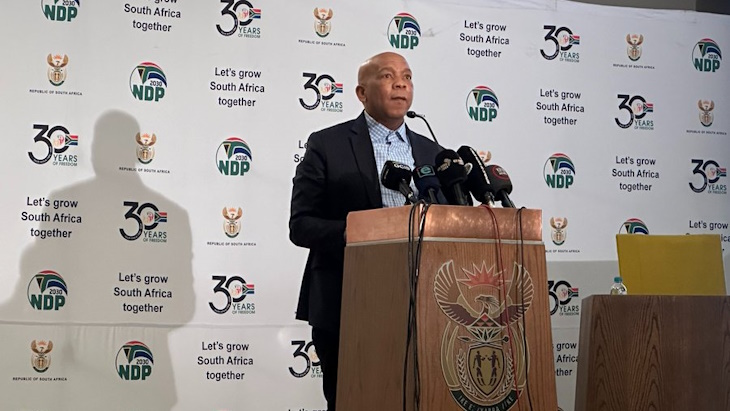
The determination was reached in 2020 but was formally gazetted in January this year, clearing the way for procurement activities to begin. But Minister of Energy and Electricity Kgosientsho Ramokgopa told a media briefing that the determination, and National Energy Regulator of South Africa's concurrence of the process, had come under legal pressure on the grounds that public comments had not been sought and the procedure had not been fair.
"I have taken the decision…to withdraw the gazette to allow for that public participation to happen," Ramokgopa said.
The minister emphasised that nuclear remains part of the government's plans for energy security, but added that it is "happy" to delay the process "to allow for each and every party in the country that wants to add a voice in how we are going to procure this process … to be given the opportunity to be able to make that submission".
"So it will add another three to six months in the process. We are happy to do that for as long as we protect the integrity of the process; for as long as we cement the transparency of the process so that there’s general public confidence in the work that we are doing," Ramokgopa said.
"Nuclear is part of the mix. Nuclear is part of the future but it’s important that as we go out…the procurement process must be able to stand the test of time. In this instance, it’s the ability to be able to subject itself to scrutiny," he added.
“Let’s go back to that process; accord the public an opportunity to scrutinise, respond and then on the basis of that [National Energy Regulator of South Africa] can make a determination on concurrence. Once we receive that, we’ll issue the gazette and ensure that we procure."
The Democratic Alliance political party was one of the groups that had begun legal action challenging the determination, with a court hearing scheduled for 15 October. "We view this withdrawal as a significant step in ensuring that public voices are considered in decisions of this magnitude. It represents an important win for the rule of law and the principles of transparency," it said today.
The South African government is in the process of updating its Integrated Resource Plan (IRP) setting out how it will seek to ensure security of electricity supply. The previous IRP, published in 2019, recognised the need to retain nuclear power in the country's energy mix and supported utility Eskom in pursuing a licence for the long-term operation of the Koeberg nuclear power plant: the two-unit plant at Koeberg is the only operating nuclear power plant on the African content and produces about 5% of South Africa's electricity.
In July, South Africa's National Nuclear Regulator granted Eskom a licence to continue operating Koeberg unit 1 for another 20 years until 21 July 2044. The regulator is expected to reach a decision on the long-term operation of unit 2 by early November 2025.